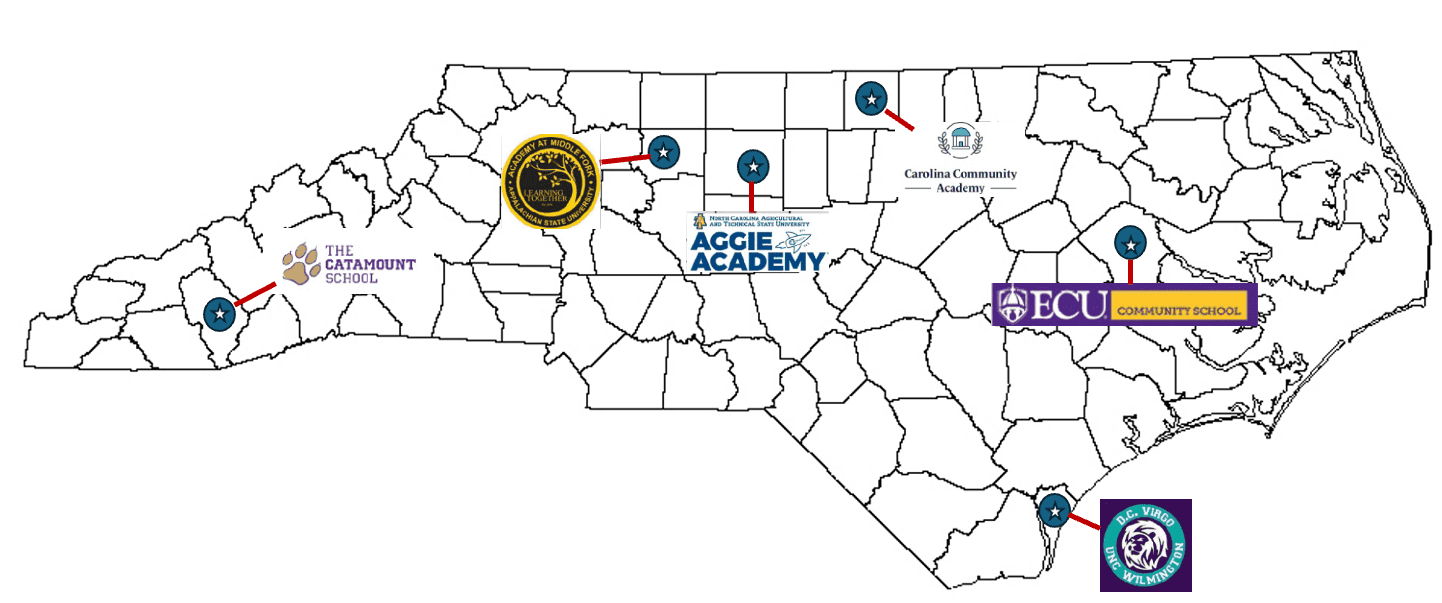UNC System Laboratory Schools
The UNC System Lab School initiative aims to provide enhanced educational programming to students in low-performing schools and to plan demonstration sites for the preparation of future teachers and school administrators.

In 2016, the N.C. General Assembly law passed requiring the UNC Board of Governors to establish eight lab schools aimed at improving student performance in low-performing schools. The System has 15 institutions that offer educator-preparation programs.
The establishment of the UNC System laboratory schools provides the opportunity to redefine and strengthen university partnerships with public schools, improve student outcomes, and provide high quality teacher and principal training. The UNC System Office selects universities that utilize their Colleges of Education to establish and operate lab schools. The lab schools then partner directly with local school districts to promote evidence-based teaching and school leadership, while offering real-world experience to the next generation of teachers and principals. UNC System Lab Schools serve every part of the UNC System mission — teaching, research, and public service.

Operating Lab Schools
Appalachian State University
East Carolina University
North Carolina A&T State University
UNC-Chapel Hill
UNC Wilmington
Western Carolina University
FAQs
What is the purpose of the UNC System Lab Schools?
According to the legislation, the purpose of the lab schools is to “improve student performance in local school administrative units with low-performing schools by providing an enhanced education program for students residing in those units and to provide exposure and training for teachers and principals to successfully address challenges existing in high needs school settings.” N.C.G.S. § 116-239.5(b)
The legislation governing the laboratory schools project focuses on three broad goals: (1) to improve the performance of students in local school administrative units with low-performing schools; (2) to provide exposure and training for teachers; and (3) to provide exposure and training for principals.
What do the UNC System Lab Schools have in common?
Each is committed to do the following:
- Deliver high expectations to prepare students for college and life
- Ensure students learn to read and communicate effectively
- Address the academic, social, and emotional needs of all students
- Harness the benefits of partnerships to strengthen learning, teaching, and school leadership
How were the universities selected to participate?
Two primary factors were considered in determining which institutions would participate in the initiative: geography and the capacity of the institutions’ schools of education and educator preparation programs. In considering the capacity of the educator preparation programs, the UNC System considered the number of undergraduate teacher candidates, the size of the education school faculty, and the amount of research money available to the schools.
For more information please contact Dr. Clay Smith.